
About the Breakfast Sessions
There will be three breakfast sessions held on Thursday 15 June (prior to the pre-congress symposiums), and two industry supported breakfast sessions will take place on Friday 16 June and two breakfast sessions on Saturday 17 June.
Breakfast sessions are available for all delegates to attend (excluding exhibitors) and spaces are limited and strictly on a first come first basis. A stand-up buffet breakfast will be provided and available 30 minutes before the sessions commence.
Please click on the links below for more information on the breakfast topics. In order to attend the breakfast sessions, you will be required to indicate your attendance as part of your registration form.
Thursday 15 June
Breakfast Session 2 - Innovations in Infusion Delivery in Oncology
Friday 16 June
Breakfast Session 1 - Polypharmacy in the elderly, comorbid haematological patient
Saturday 17 June
Breakfast Session 1 - Navigating survivorship in immuno-oncology
Thursday 15 June
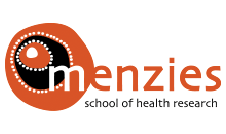
Title: Identifying and meeting the supportive care needs of Aboriginal and Torres Strait Islander peoples with cancer: Implementation of the Supportive Cancer Needs Assessment Tool for Indigenous Persons (SCNAT-IP).
Time: 0815 - 0915 - A stand-up buffet breakfast will be provided and available 30 minutes before the sessions commence (7.45am - 8.15am). This will be served outside the meeting room.
Presenters:
Associate Professor Gail Garvey - Division leader of Epidemiology and Health Systems Menzies School of Health Research
Ms Christine Long – RN –Project Manager Menzies School of Health Research
Dr Suzanne Moore – RN- Research Fellow Menzies School of Health Research
Description:
This session aims to enhance Health Professionals understanding of the unmet supportive care needs of Indigenous Australians affected by cancer; inform health professionals about the SCNAT-IP; and discuss how to integrate the tool into the routine cancer care of Indigenous Australians.
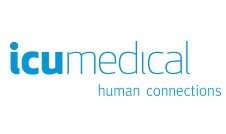
Title: Innovations in Infusion Delivery in Oncology
Time: 0815 - 0915 - A stand-up buffet breakfast will be provided and available 30 minutes before the sessions commence (7.45am - 8.15am). This will be served outside the meeting room.
Presenters and Description
Presenter 1: Nicole Gavin – Acting Nurse Researcher, Cancer Care Services, Metro North Hospital and Health Service QLD
From the bedside to the bench and back again. Using an innovative laboratory model to answer an age old clinical question. Nicole will present her research which has the potential to translate into improved rates of CLABSI for patients diagnosed with cancer and provide an evidence base for policy and practice.
Presenter 2: Julie Flynn, PhD candidate, Griffith University. Senior Research Assistant,
Alliance for Vascular Access Teaching and Research (AVATAR), Griffith University.
Julie will be speaking on a laboratory based study comparing three needleless connector decontamination methods.
Presenter 3: Richelle Finselback, South Australian Clinical Manager, chemo@home.
chemo@home – a truly innovative delivery system. chemo@home commenced in Perth 4 years ago with no patients and no referring doctors. It now employs 22 staff delivering chemotherapy and many other infusions and treatments across the Perth metropolitan area and more recently commenced its service in Adelaide. Richelle will expand on why this chemotherapy service is so innovative.
As the scope of professional knowledge around infusion delivery in oncology settings widens, it has become important for clinicians to keep up to date with changes to theory, best practice, and available technology. In this session, two speakers will examine innovations that address a range of factors that affect infusions in the oncology setting and provide participants with ideas on how these innovations can be applied in their own clinical settings. This session will appeal to clinical nurses, managers, educators, and researchers.
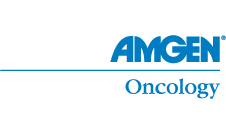
Title: Practical strategies for management of EGRFi skin reactions in metastatic colorectal cancer patients: a multidisciplinary view
Time: 0815 - 0915 - A stand-up buffet breakfast will be provided and available 30 minutes before the sessions commence (7.45am - 8.15am). This will be served outside the meeting room.
Presenters: to be confirmed
Description:
Treatment of eligible metastatic colorectal cancer patients with an epidermal growth factor receptor inhibitor (EGFRi) is associated with various skin reactions. These can cause physical and emotional distress and a multidisciplinary approach is needed to provide optimal supportive care to patients. At this symposium, we will hear from different members of the multidisciplinary care team about why EGRFi cause skin reactions, what to look for, and a focus on practical strategies for their management by colorectal cancer nurses.
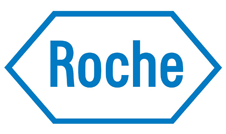
Title: Polypharmacy in the elderly, comorbid, haematological patient.
Time: 0715 - 0815 - A stand-up buffet breakfast will be provided and available 30 minutes before the sessions commence (6.45am - 7.15am). This will be served outside the meeting room.
Presenter 1: Dr Angela Molga
Presenter 2: Michelle Wall
Presenter 3: Nicole Loft
Description:
Haematological malignancies are seen with increasing frequency in patients older than 65 years. Management of these patients is complicated by comorbidities and the associated problem of polypharmacy. Learn how to recognize drug-related problems in older haematology patients and what you can do to reduce the risks of polypharmacy.
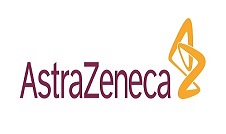
Title: The expanding role of nurses in consenting women for BRCA testing in oncology clinics using the mainstreaming model
Time: 0715 - 0815 - A stand-up buffet breakfast will be provided and available 30 minutes before the sessions commence (6.45am - 7.15am). This will be served outside the meeting room.
Presenters:
To be confirmed
Description:
The genetic counselling mainstreaming model allows for more rapid access to BRCA testing (compared to traditional genetic counselling approaches) to inform treatment decisions for women with ovarian cancer. This interactive session will explore the expanding role of nurses in consenting women with ovarian cancer for BRCA testing using the mainstreaming model. Presenters will share their first-hand experience to illustrate the role oncology nurses can play in the BRCA testing pathway.
Objectives :
This symposium aims to provide participants the opportunity to:
- compare mainstreaming to traditional approaches for genetic counselling in the ovarian cancer setting
- review options for mainstreaming genetic counselling as part of the gynae-oncology care pathway, with a focus on the role of oncology nurses
- gain familiarity with tools and resources available to support mainstreaming of genetic counselling for ovarian cancer patients
- consider the practicalities and steps required for implementing mainstreaming as part of multidisciplinary clinical practice in the ovarian cancer setting.
Saturday 17 June
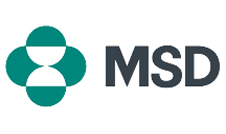
Title: Navigating survivorship in immuno-oncology
Time: 0715 - 0815 - A stand-up buffet breakfast will be provided and available 30 minutes before the sessions commence (6.45am - 7.15am). This will be served outside the meeting room.
Presenters:
To be confirmed
Description:
With the durability of immuno-oncology agents, cancer patients are living longer and their health needs are evolving. It is important to understand the health needs and experiences of cancer survivors, and the impact that this has on the changing conversation between the oncology MDT and the patient. This session aims to highlight key issues and questions in this new era of cancer treatment.

Title: Practical Nursing Management of Novel Therapies in Haematology – Multiple Myeloma and Acute Lymphoblastic Leukaemia
Time: 0715 - 0815 - A stand-up buffet breakfast will be provided and available 30 minutes before the sessions commence (6.45am - 7.15am). This will be served outside the meeting room.
Presenters:
Peter Haywood, Nurse Coordinator - Acute Leukaemia, The Royal Melbourne Hospital
Jo Gardiner, Myeloma Support Nurse -SA/NT, Myeloma Australia
Description:
Delivery of novel therapeutic agents in multiple myeloma (MM) and acute lymphoblastic leukaemia (ALL) requires a highly specialised skill set. There is a need for clear understanding and process in the use, efficacy and safety of recently available agents carfilzomib and blinatumomab.1,2
In this session, Jo Gardiner and Peter Haywood will discuss the role of innovative immune therapies in the management of acute ALL and multiple myeloma, and provide information on the practical use of carfilzomib and blinatumomab, respectively, in the clinical setting.
1. KYPROLIS® (carfilzomib) Australia Product Information, 2. BLINCYTO® (blinatumomab) Australian Product Information.

